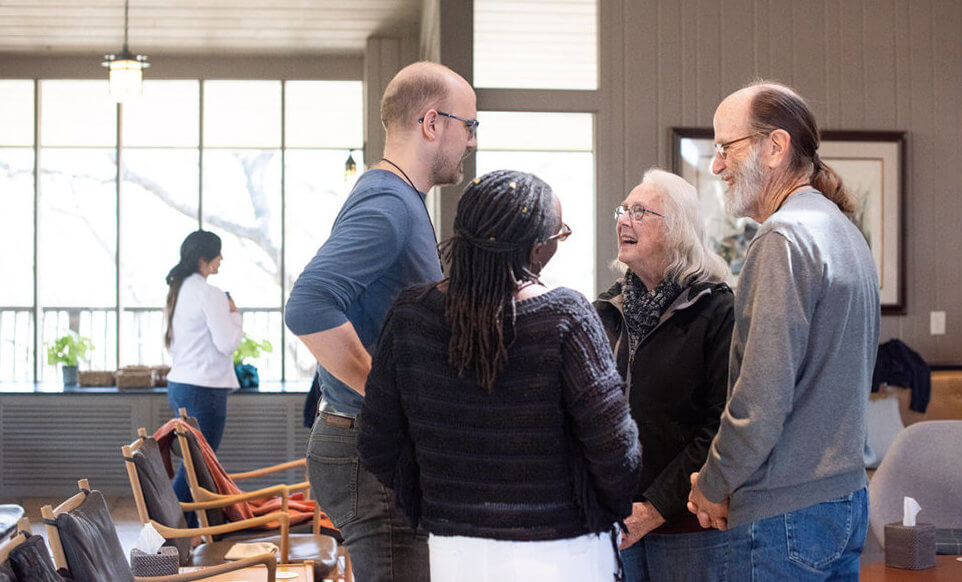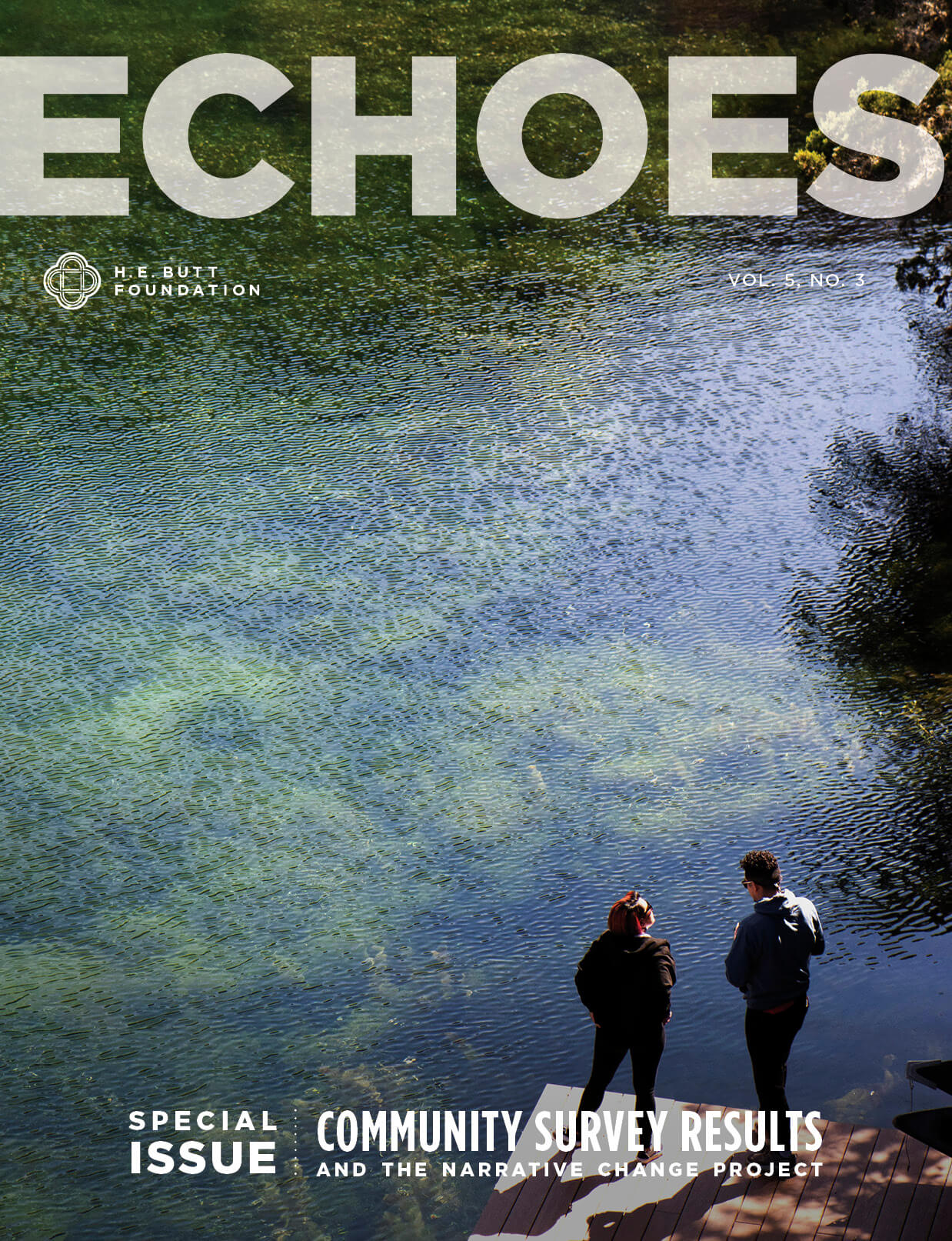

Who received and responded to the survey? The basic answer: older people of Christian faith in Texas who tend to have an abundance of resources.
While the U.S. Census shows that only 26 percent of households across Texas have an income above $100,000, over half (or 56 percent) of the households in our survey enjoy this income bracket. Our respondents are also actively engaged with organizations in their communities, with 89 percent reporting involvement with their church, parish, or other faith congregation and 73 percent engaged with nonprofit organizations.
These mature, affluent, religious communities see themselves as oriented to the needs of people experiencing poverty in their areas. Among those who reported involvement with a community of faith, 73 percent said their church prioritizes support for people who lack access to resources. This group also reports individual giving to organizations addressing the needs of poverty: 80 percent of respondents give to nonprofits, and 71 percent give to food pantries.
This all seems promising, right? A lot of well-resourced Texas Christians go regularly to churches that care a lot about poverty, and on top of that, they give their own money to support the needs of those who don’t have enough to eat. It sounds like our community is doing its part.
Yet survey respondents also revealed other, trickier sensibilities: the issue of poverty feels really big (overwhelming, in fact); people feel like what they’re doing is not enough; at the same time, it’s unclear how much interest there is in doing more.
About this time last year, we sent you a community survey. That was our way of starting a conversation with you about the gaps that exist within our communities, especially the gaps in opportunities and resources that leave so many families and children struggling to survive.
As a solution to a big social problem like inequity, “relationships” may sound too simple or too soft. But lack of connection between people perpetuates a lack of empathy and understanding, which leads to a lack of vision for lasting change. And there’s nothing soft about relationships.
We asked 20,000 people questions about what social concerns they feel need the most attention. We also gave them a chance to tell us about what they’re already doing in their community. Here's what we learned.
